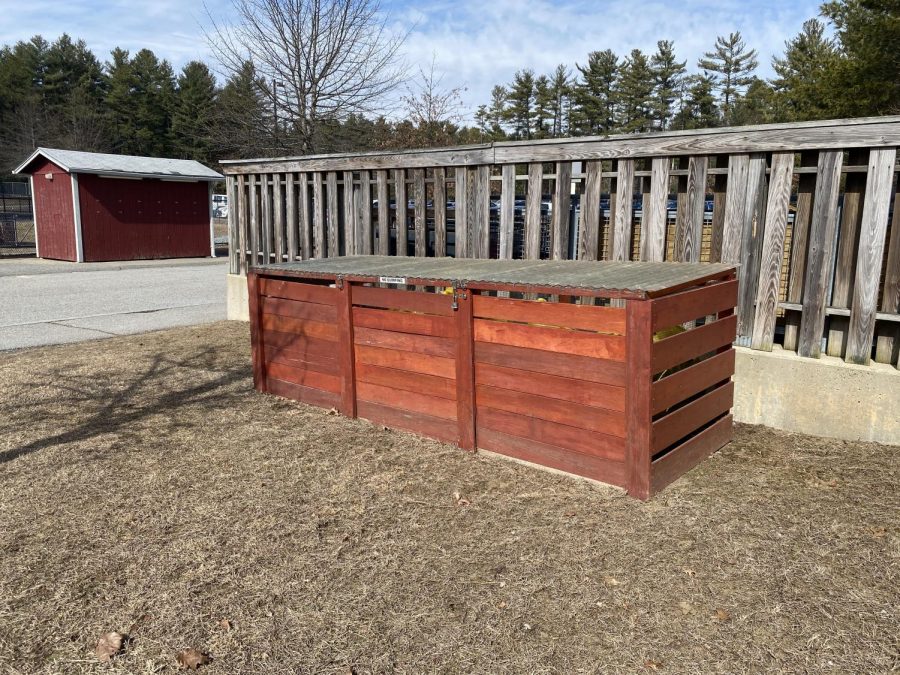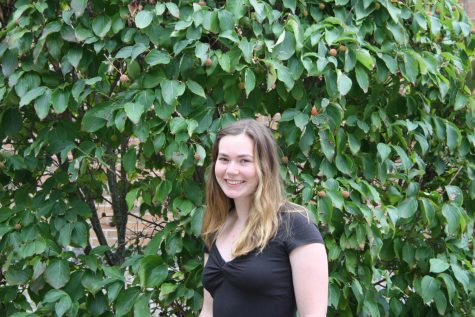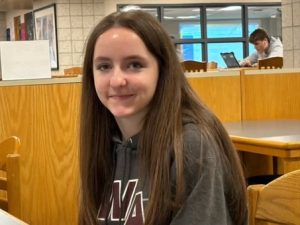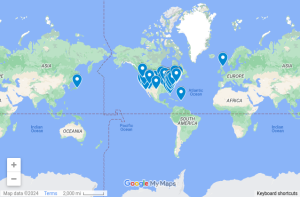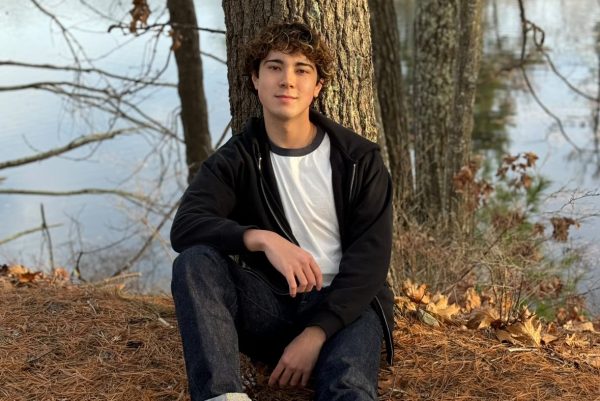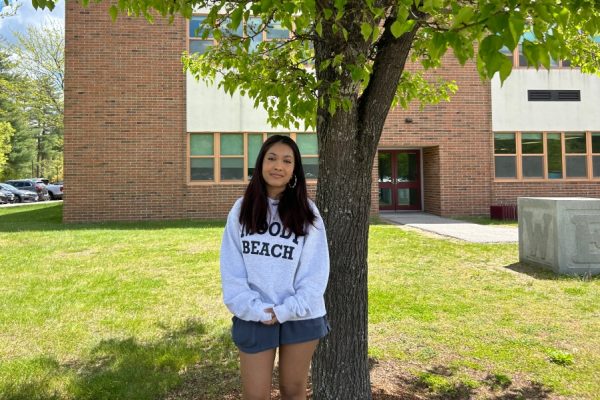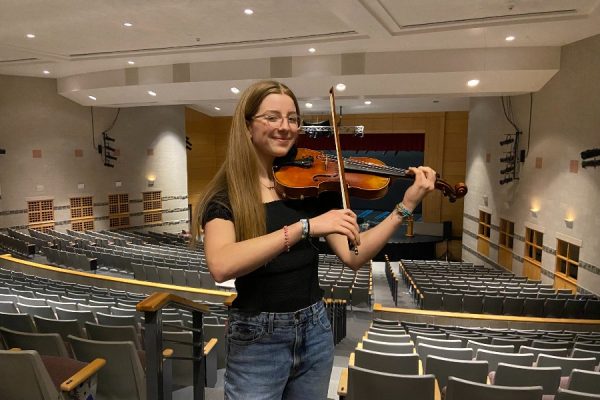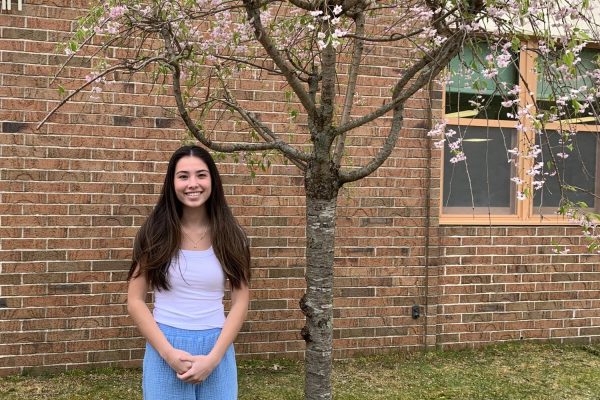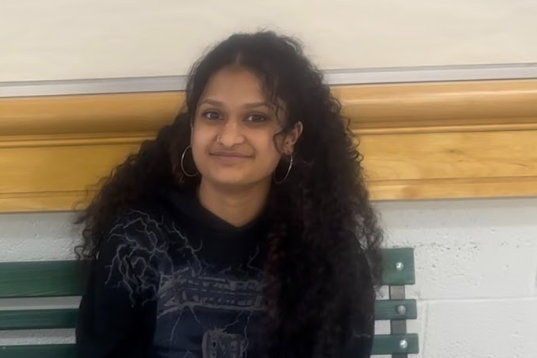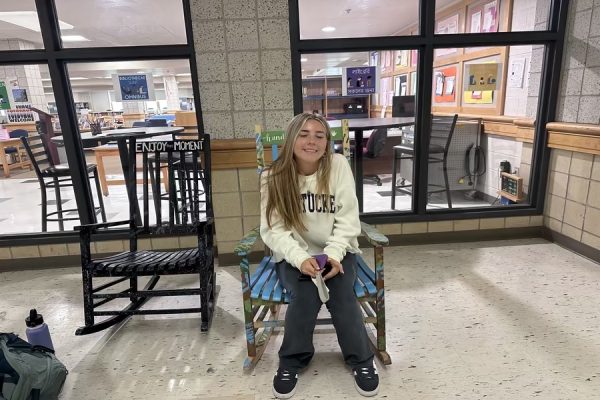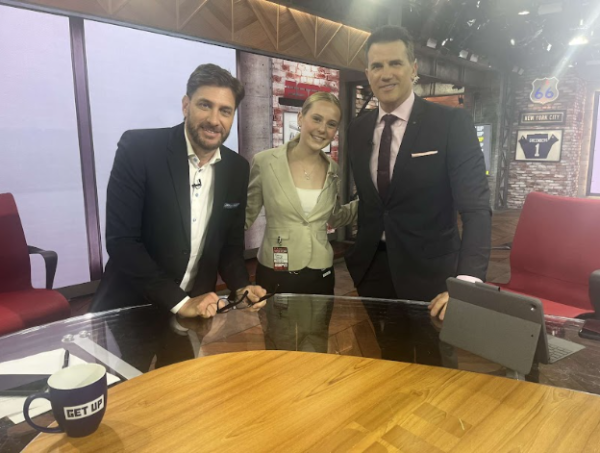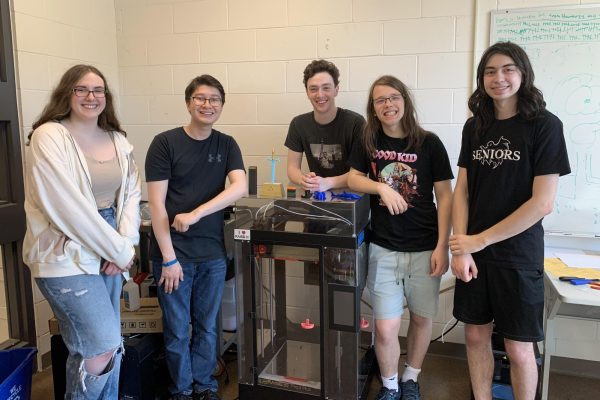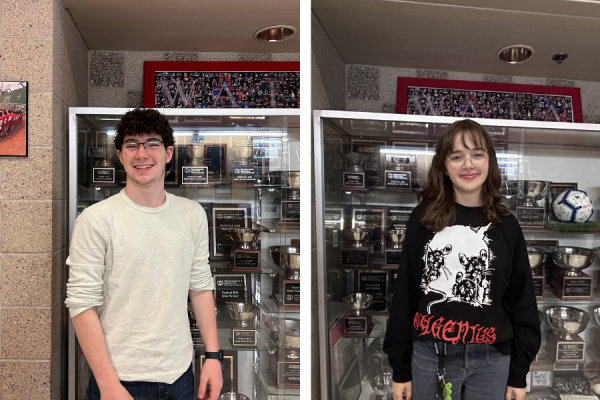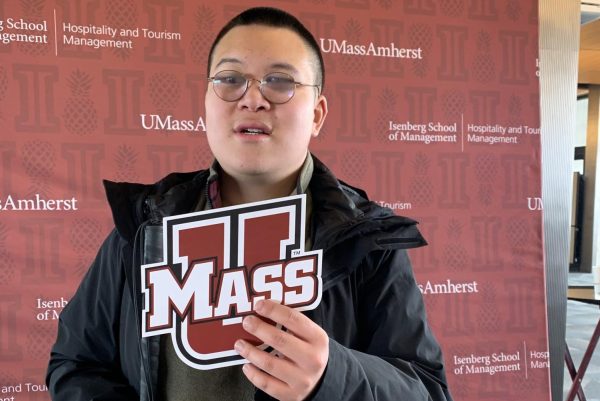WA takes a stand against environmental issues
The compost bins are outside Westford Academy near the outdoor eating area.
March 6, 2020
Students and teens all over the world have been stepping up and trying to help environmental challenges that the world is facing. Westford Academy students have also been taking a stand through both the environmental club and the compost club.
Science teachers Mark Soo and Jennifer Girardi have been co-advisors of the environmental club since the 2017-2018 school year. This was also the first year that the environmental science course, offered in both CP and AP levels, was provided. Soo and Girardi, the teachers of these classes, thought it made sense for them to take over the Environmental Club from English teacher Rebecca Ingerslev.
The environmental club meets for an hour after school on Tuesdays and they run multiple environmental projects throughout the school year.
“We usually do at least one fundraiser for natural disaster relief or environmental restoration. We’ve done cleanups of local public spaces, like Nabnasset beach. During the holiday bazaar, we also typically run a fundraiser to benefit an environmental cause. This year, we raised money to donate to reforestation efforts (planting trees) run by the Arbor Day Foundation. To raise this money, we created hand-painted pots, potted small plants, and sold them at the Holiday Bazaar. In total, we were able to give more than $100 for reforestation,” Soo said.
They also run the school’s upcycling program where they convert trash such as granola bar wrappers into usable items, preventing them from being sent to landfills.
While the environmental club is teacher-run, the compost club is student-run by seniors Caitlin Greene and Claire Song; they report to their head advisor, Sharon Chew from Westford Community Compost.
“Each person is assigned a day to compost by themselves. They will retrieve the [compost] bags from the cafeteria, chop the food scraps into small pieces, and mix it into a large container with leaves and dirt,” Greene said.
WA students have the ability to help the community and learn the various methods to help reduce waste in today’s society.
“The club has taught me the importance of caring for the environment, and how simple it truly is. It only takes a few minutes each day to make a difference. Composting is a simple task that anyone can do at any time,” Greene said.
Whether a student wants to help compost on their assigned day, or if they want to run environmental projects throughout the year, students at WA have the opportunities.
“That’s what’s most exciting for me; the students come in with ideas about what matters to them and we get to work together to make a difference,” Soo said.

